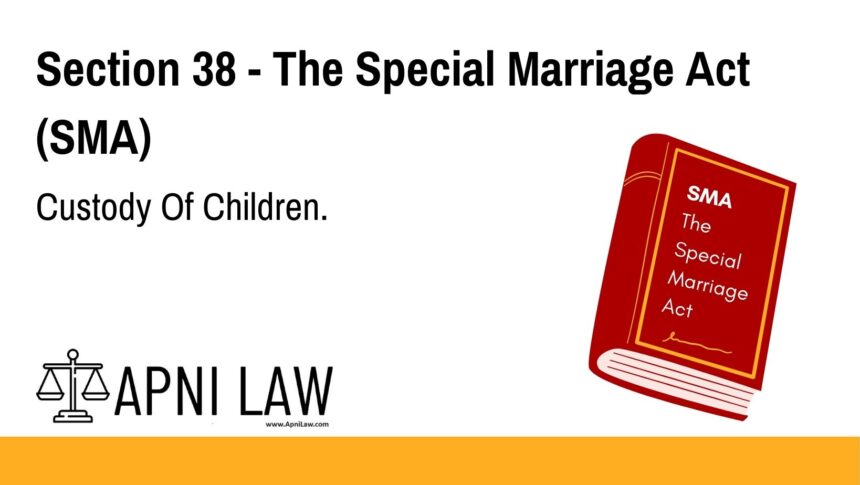Code: Section 38 – Custody of Children
In any proceeding under Chapter V or Chapter VI the district court may, from time to time, pass such interim orders and make such provisions in the decree as it may seem to it to be just and proper with respect to the custody, maintenance and education of minor children, consistently with their wishes wherever possible, and may, after the decree, upon application by petition for the purpose, make, revoke, suspend or vary, from time to time, all such orders and provisions with respect to the custody, maintenance and education of such children as might have been made by such decree or interim orders in case the proceeding for obtaining such decree were still pending.
Provided that the application with respect to the maintenance and education of the minor children, during the proceeding, under Chapter V or Chapter VI, shall, as far as possible, be disposed of within sixty days from the date of service of notice on the respondent.
Explanation of Section 38 – Special Marriage Act
Section 38 of the Special Marriage Act empowers the district court to make appropriate and flexible orders regarding the custody, education, and maintenance of minor children involved in matrimonial proceedings. These orders can be made either during the pendency of the case or after the final decree (such as divorce or judicial separation).
The provision ensures that the welfare of the children remains paramount and is considered independent of the rights and obligations of the parents.
Key Features:
- Applies to proceedings under:
- Chapter V (Matrimonial Reliefs)
- Chapter VI (Nullity of Marriage and Divorce)
- Court powers include:
- Passing interim orders regarding custody, education, and maintenance
- Including permanent provisions in the final decree
- Modifying or revoking such orders later based on changing circumstances
- Consideration of:
- Wishes of the minor children, wherever possible
- Welfare and best interests of the child as the guiding principle
- Time-bound disposal:
- Applications for child maintenance and education during the proceeding should be decided within 60 days from the date of notice to the respondent
Illustration
Example 1: Interim Custody Order During Divorce
A couple files for divorce under Chapter VI. During the proceedings, the wife applies for custody of their 6-year-old daughter. The court, after considering the child’s welfare and her stated preference, grants interim custody to the mother and orders the father to pay ₹10,000/month toward maintenance and school expenses.
Example 2: Post-Decree Modification
A father is granted custody of his son in a divorce decree. Two years later, the mother applies under Section 38, citing the father’s relocation abroad. The court reviews the case and modifies the custody arrangement, transferring care to the mother.
Common Questions and Answers on Section 38 SMA
Q1. What does “custody” include under Section 38?
Custody under this section includes physical custody, as well as decisions regarding education, upbringing, and overall welfare of the minor children.
Q2. Can custody orders be changed later?
Yes. The court may revoke, suspend, or vary custody, maintenance, or education orders based on a petition and any change in circumstances after the final decree.
Q3. Does the child’s preference matter?
Yes. The law specifically requires that the court consider the wishes of the minor child wherever possible and appropriate.
Q4. What is the timeline for deciding such applications?
As per the proviso, applications related to the maintenance and education of children during the proceeding should be disposed of within 60 days from the date the notice is served on the respondent.
Q5. Can both parents be involved in decisions post-divorce?
Yes. The court may pass joint custody or shared decision-making orders depending on what is in the best interest of the child.
Conclusion
Section 38 of the Special Marriage Act ensures that the best interests of minor children are protected throughout and beyond matrimonial proceedings. By enabling timely, flexible, and child-centric orders for custody, maintenance, and education, it supports a fair and balanced approach to parenting after marital breakdown.
For more legal clarity on child custody, matrimonial rights, and family law, visit ApniLaw.








